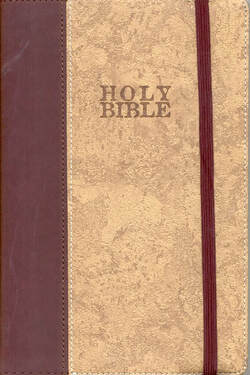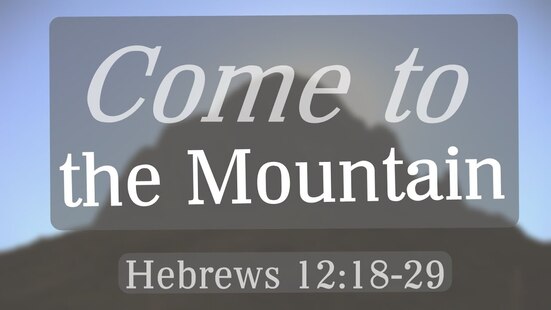Hebrews 12:18-29 Lesson 434
Read both the "King James Bible" and the "New Living Translation."
In this lesson:
Last warning.
The blessings (12:18-24) and demands (12:25-29) of salvation.
The world will end, leaving only God's heavenly kingdom (12:27-29).
"The terrifying demonstrations of the inauguration of the Old Covenant are contrasted with the heavenly
fellowships of the church: One vast brotherhood, in which saints on earth, and spirits of the redeemed, and
infinite hosts of angels are in sweet and mystic communion around the throne of God, forever and ever (12:22-24).
( "Halley's Bible Handbook" by Henry H. Halley, Zondervan Publishing House, Grand Rapids, Michigan; page 655)
Where is -
Mount Sion -
From the Hebrew word siyon. Mount Sion, also called Mount Zion or "the city of David" (1 Kings 8:1), is Jerusalem. Originally, Mount Sion was nothing more than a fortified hill occupied by the Jebusites and captured by King David (2 Samuel 5:7). David built a palace on Mount Zion and founded Jerusalem. In time, the name Zion became synonymous for Israel (Psalm 48; Romans 9:33) and the Jewish people (Psalm 149:2; Isaiah 33:14). In this passage, Zion symbolizes the heavenly city, the place where God dwells (Hebrews 12:22; Revelation 14:1).
Mount Sion -
From the Hebrew word siyon. Mount Sion, also called Mount Zion or "the city of David" (1 Kings 8:1), is Jerusalem. Originally, Mount Sion was nothing more than a fortified hill occupied by the Jebusites and captured by King David (2 Samuel 5:7). David built a palace on Mount Zion and founded Jerusalem. In time, the name Zion became synonymous for Israel (Psalm 48; Romans 9:33) and the Jewish people (Psalm 149:2; Isaiah 33:14). In this passage, Zion symbolizes the heavenly city, the place where God dwells (Hebrews 12:22; Revelation 14:1).
Study Tip:
Remember to read the Margin Notes in blue and click on the links.
Remember to read the Margin Notes in blue and click on the links.












